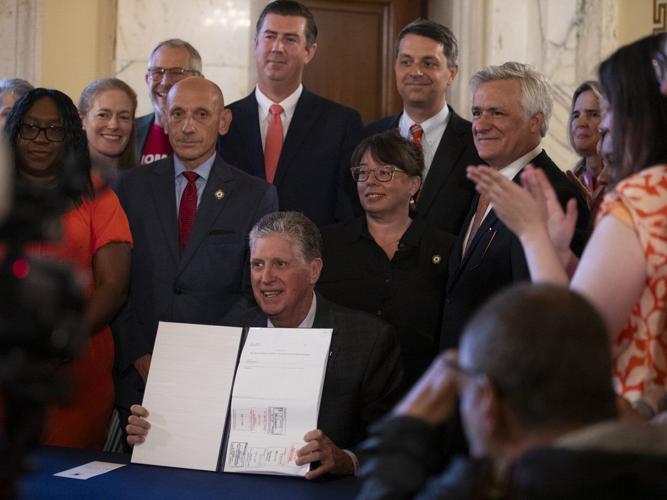After over a decade of advocacy, Rhode Island passed an assault weapon ban that could signal a new legal direction for gun control efforts in the U.S.
The law, signed by Governor Dan McKee, focuses on banning the sale, manufacturing, and distribution of specific high-powered firearms starting in 2026. Unlike other state laws, it doesn’t prohibit ownership—aiming to sidestep direct Second Amendment conflicts.
Supporters say the narrow focus may help it withstand legal challenges, which are common in other states with broader bans.
The bill gained momentum following a Senate leadership change. Senate President Valerie Lawson, who took over in April, played a key role in aligning lawmakers across chambers.
“This was the right time,” Lawson said. “We found common ground and met the moment.”
Currently, only Washington state has a similar law on the books. Most bans across the U.S. are under legal challenge, and the Supreme Court is expected to weigh in eventually.
In Rhode Island, advocates hope the law’s targeted scope—avoiding possession restrictions—may keep it intact, even if broader bans fall.
Some critics argue it doesn’t go far enough. “It’s progress, but a true ban should include possession,” said Melissa Carden, of the Rhode Island Coalition Against Gun Violence.
Still, lawmakers believe the new restrictions will prevent out-of-state purchases from undermining the law. “Come July 1 next year, those workarounds will end,” said Senator Louis DiPalma.


